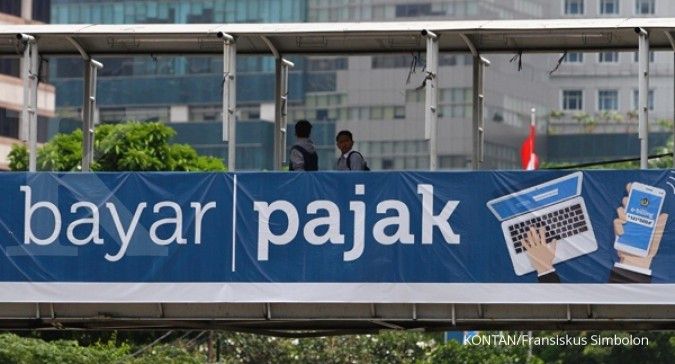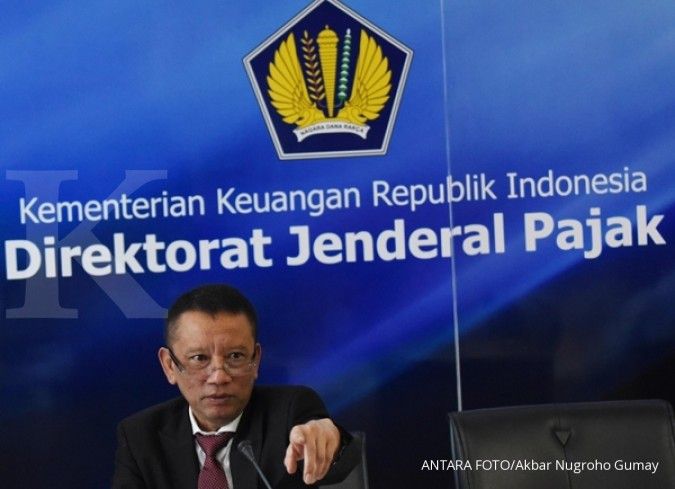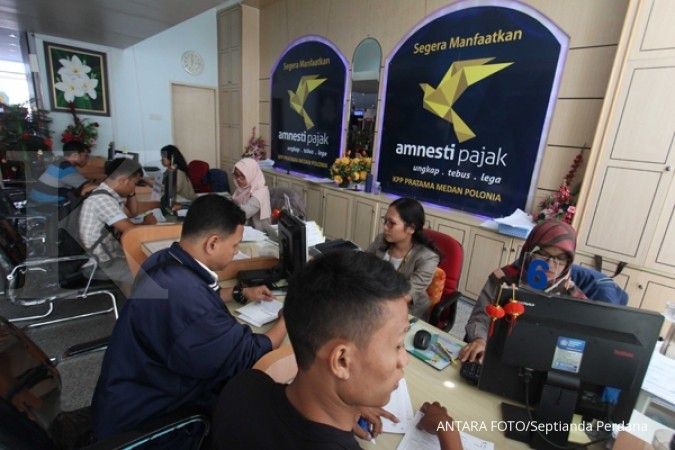JAKARTA. Directorate General of Taxation is preparing some strategies to pursue taxpayers, mainly the major depositors, after the completion of tax amnesty program on 31 March 2017. About more than one million account ownerships with the total nominal deposits of Rp 3,000 trillion are potentially to become the targets of tax authority.
On 26 January 2017, or one month after the implementation of the third period of tax amnesty, Directorate General of Taxation at Ministry of Finance Ken Dwijugiasetiadi had sent letters to National Banks Association (Perbanas), the Association of State Owned Banks (Himbara), and the Association of Regional Development Banks to call the depositors to participate in tax amnesty.
Ken requested those institutions to convey the message to the banks to call their customers to join tax amnesty program. The target of the message is the account holder with the total amount of deposits of more than Rp 500 million.
The data of Deposit Insurance Agency (LPS) show that as per December 2016, there were 1,033,119 accounts under that category with the total amount of deposits of Rp 3,482.156 trillion. However, the identities of those depositors are part of the banks’ secrecy, said Director of Counseling, Services, and Public Relations at Directorate General of Taxation Hestu Yoga Saksama.
Some bankers claimed to have received the messages from the tax authority related to the call for participating in tax amnesty. The bankers also claimed to have conveyed the messages to the costumers of the respective banks.
Meanwhile, the Director of Bank BTN Iman Nugroho Soeko admitted to have not received the letter from Directorate General of Taxation. “However, we have called our customers with the amount of credits or deposits of more than Rp 500 million to voluntarily participate in tax amnesty,” Iman said.
Apparently, the bankers’ respond on Directorate General of Taxation’ request is related to the recent development in global banking policy. Iman said, the Automatic Exchange of Information (AEOI) will be implemented in the next year. It has become a global trend that the tax authority can access all data related to the depositors both in domestic and overseas banks.
Therefore, the taxpayers will no longer be able to hide their assets, including the interest income, in any country. “The banks abroad will report (the taxpayers’ data) to the local tax office. Subsequently the local tax office will exchange the data with Indonesia’s Directorate General of Taxation,” he added.
According to Director of Financial and Planning of Bank Bukopin Eko R. Gindo, some countries, which are known as the tax haven countries, will be difficult to avoid the AEOI. Furthermore, the number of accounts with the deposits of more than Rp 500 million remains significant. “The liquidity is still preserved, despite the economy participants are adapting wait and see stance,” said Eko.
Actually, the depositors, mainly those who have unreported assets, would be difficult to deny the message from the tax authority. Recently, the Ministry of Finance can make written request through the electronic Application of Proposal for Bank Secrecy Disclosure (Akasia) to the OJK (Financial Service Authority or FSA) to disclose the banking information of the taxpayers. Subsequently, the OJK will proceed the permit through the Application of Bank Secrecy Disclosure(Akrab).
Ken said, the system might accelerate the request for access of banks customers data. Recently, the process of accessing banking data takes 239 days to proceed. After the end of tax amnesty program, the process will only need a maximum of 30 days to proceed.
Tax observer Yustinus Prastowo estimates that the shorter processing time will allow the tax authority to settle more taxation cases. But more essentially, the new method will minimize the potential of the risk of information leakage.
According to Yustinus, the longer processing time to access the banking data will allow the depositors to withdraw their deposits before the accounts being blocked. Let alone, the written system will allow many parties to access those information. “The old system would have allowed many parties, such as the tax bailiff , banks’ employers, or even the employers of OJK to manipulate the information,” Yustinus added.
The electronical systems, which will be applied by the Directorate General of Taxation and the OJK are expected to minimize the leakage of information, on the grounds that the aplication could be accessed only by a limited circle. Therefore, any leakage of information would be easily traced.
So, it will be outrageous if the information still leaks out!
(Muhammad Farid/Translator)
/2017/01/16/2127236680p.jpg)













